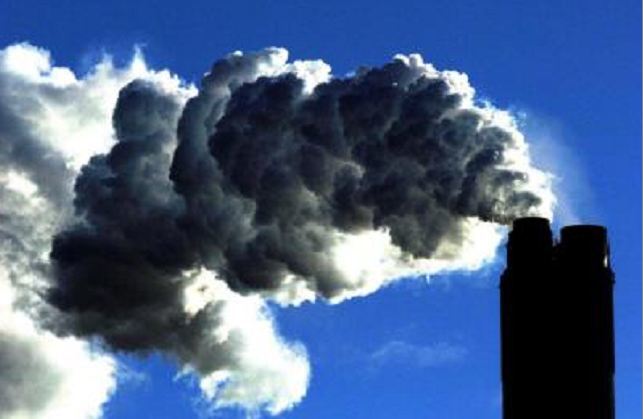
Global greenhouse gas emissions are set to stall or even fall slightly in 2015 – despite economic growth, a study has revealed.
The rise in climate change-causing emissions has stuttered in the past two years, largely due to a drop in coal consumption by the world’s biggest polluter China, as well as more renewables and lower growth in demand for oil and gas.
Last year, emissions grew by just 0.6%, after a decade of annual increases averaging around 2.4% a year.
And they are thought to have fallen by around 0.6% in 2015, according to the study by the University of East Anglia (UEA) and the Global Carbon Project published in the journal Nature Climate Change.
The stalling of greenhouse gas output is significant because it comes despite growth of more than 3% in both years – marking a change from previous drops in global emissions that occurred following contractions in the economy such as the 2008 downturn.
But the figures, announced as countries meet in Paris for crucial COP21 UN talks on preventing dangerous global temperature rises of more than 2C, do not necessarily mean the world has reached a needed peak and downward trend in emissions.
Experts warn global emissions must come down to zero in order to stabilise the climate – as continuing to pump out carbon into the atmosphere would cause continued temperature rises over the long term.
Professor Corinne Le Quere, director of the Tyndall Centre at UEA who led the data analysis, said it was “unlikely” that emissions had peaked for good because developing countries still relied primarily on coal to meet their energy needs and cuts in pollution in some rich countries were still “modest at best”.
But she said: “These figures are certainly not typical of the growth trajectory seen since 2000 – where the annual growth in emissions was between 2 and 3%.
“What we are now seeing is that emissions appear to have stalled, and they could even decline slightly in 2015.”
She said the projected emissions for 2015 ranged from a small rise of 0.5% to a fall of up to 1.6%.
She added: “Today’s news is encouraging, but world leaders at COP21 need to agree on the substantial emission reductions needed to keep warming below 2C.”
The world is still emitting 36 billion tonnes a year of carbon dioxide from fossil fuels and industry alone, she said, warning: “There is a long way to near zero emissions”.
China’s emissions fell almost 4% in 2015, largely due to a drop in coal consumption, the study found.
Whether slower growth in emissions could be sustained depends on coal use in China and other major emerging economies, and whether new energy supplies are low carbon.
How India provides power for its 1.3 billion people, including 300 million who are not connected to the grid, is key, with the researchers warning that for global emissions to peak soon, part of its new energy must come from low carbon sources.
The data also shows the UK was responsible for 1.2% of global emissions in 2014, experiencing a 9% drop in emissions that year, while the EU as a whole created 10% of the total world greenhouse gas output, but is seeing declines of 2.4% year on year over the past decade.
Commenting on the study, Professor Myles Allen at the University of Oxford said: “To stop temperatures rising, net emissions need to be reduced to zero.
“But for that, emissions need to peak first. So evidence that it is possible to grow the world economy while reducing emissions is of course good news.
“Is this the beginning of the end of global warming? Probably not. But let’s hope it is the end of the beginning.”
Recommended for you
